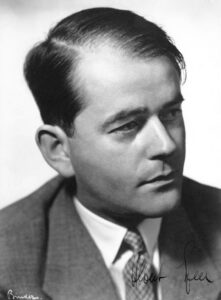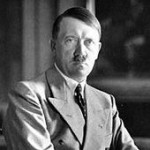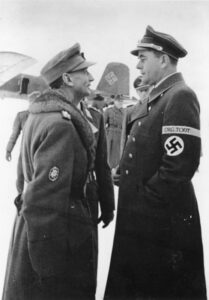 As Hitler continued his reign of terror over the people of Germany, in his quest to rule the world, he decided that he needed to destroy much of the German infrastructure so that the Allied forces couldn’t use it as they penetrated deep withing the borders of Germany. Hitler must have known by now that he was losing this war, even in his crazed state, so he was trying to find a way to turn the tide.
As Hitler continued his reign of terror over the people of Germany, in his quest to rule the world, he decided that he needed to destroy much of the German infrastructure so that the Allied forces couldn’t use it as they penetrated deep withing the borders of Germany. Hitler must have known by now that he was losing this war, even in his crazed state, so he was trying to find a way to turn the tide.
The Nero Decree (German: Nerobefehl) was the order issued by Hitler on March 19, 1945, right after the Allies captured the final bridge on the Rhine River that allowed access into Germany. The Nero Decree ordered the destruction of large numbers of bridges in Germany. The official name was Decree Concerning Demolitions in the Reich Territory (Befehl betreffend Zerstörungsmaßnahmen im Reichsgebiet), but that is rather a long name, so it became known as the Nero Decree, after the Roman Emperor Nero, who, according to an apocryphal story, “engineered the Great Fire of Rome in 64 AD.”

This act would have wiped out all of Germany’s industry and infrastructure just to keep it from falling under Allied control. Hitler didn’t care about that or about the people who would be affected. The actual task of carrying out such destruction fell to Germany’s armaments minister…and Hitler’s friend, Albert Speer. Speer knew that to follow the order would have a ruinous effect on the German people, so like Von Choltitz, who had disobeyed the order to burn Paris, Speer deliberately disobeyed the order of his friend, who he suspected was mentally unstable. In addition, Speer also issued encrypted alternate orders to delay the destruction. In the end, the Nero Decree wasn’t carried out at all, something which I’m quite certain drove Hitler totally insane.

Speer was one of the highest-ranking members of German leadership to survive the war. He attempted to promote himself as someone who stood up to Hitler. While history does credit him with refusing to follow the Nero Decree, it did not completely exonerate him. Speer was an architect, and he wanted to preserve many buildings he had designed. Berthold Konrad Hermann Albert Speer, born March 19, 1905, in Mannheim, into an upper-middle-class family. He was the second of three sons of Luise Máthilde Wilhelmine (Hommel) and Albert Friedrich Speer. He was a German architect who served as the Minister of Armaments and War Production in Nazi Germany during most of World War II. He was also a close ally of Adolf Hitler, a relationship which would cause him to be convicted at the Nuremberg trials and sentenced to 20 years in prison. Speer returned to London in 1981 to participate in the BBC Newsnight program. He suffered a stroke and died in London on September 1, 1981.


Leave a Reply